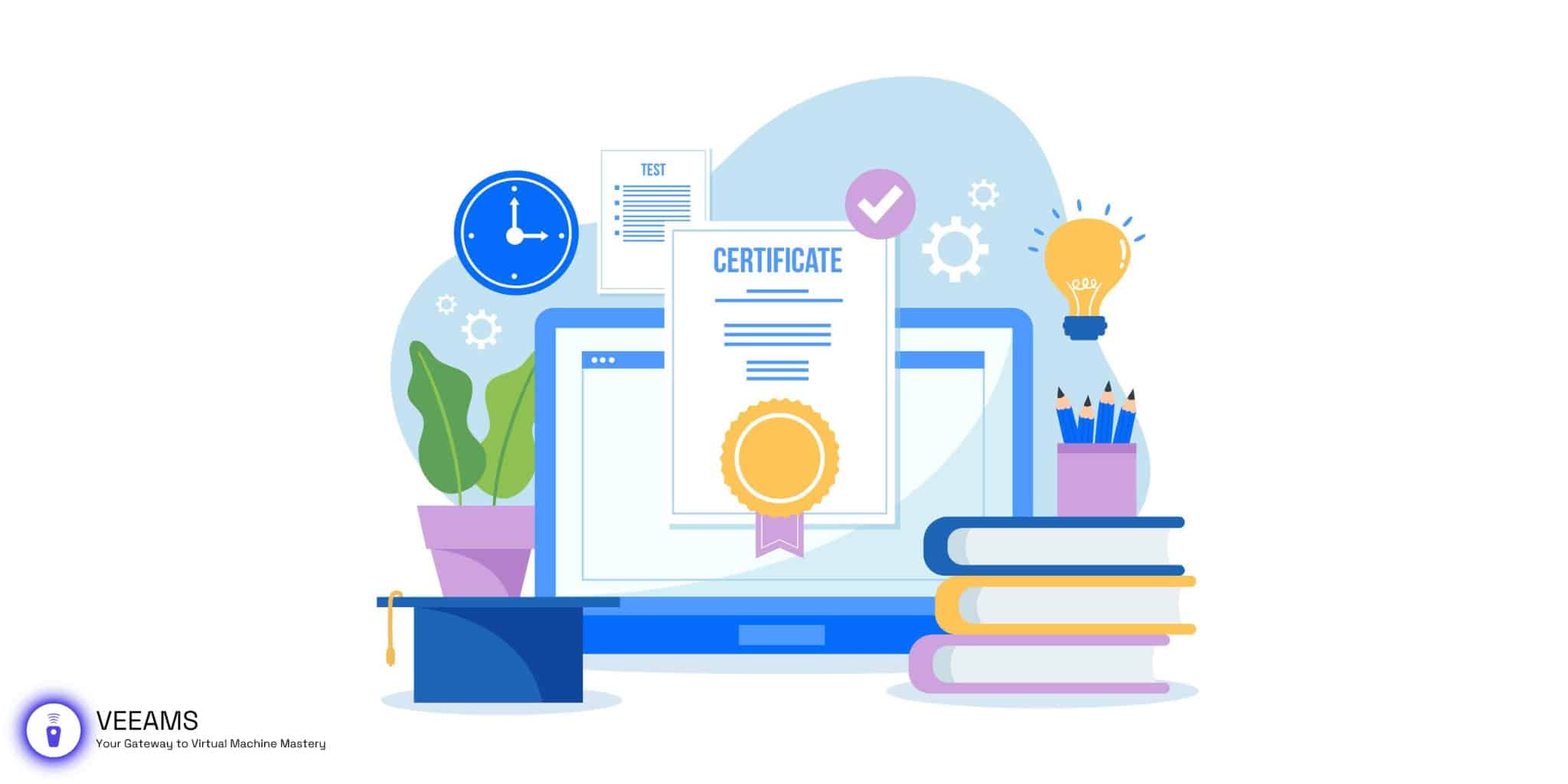Understanding VMware Certification Levels
VMware certifications are structured into four primary levels, catering to professionals at different stages of their careers.
- VMware Certified Associate (VCA): This is the entry-level certification, ideal for those new to VMware solutions. It demonstrates a basic understanding of virtualization concepts and how they apply to VMware products.
- VMware Certified Professional (VCP): VCP is designed for IT professionals who install, configure, manage, and optimize VMware solutions. Earning a VCP certification requires hands-on experience with VMware technologies.
- VMware Certified Advanced Professional (VCAP): Aimed at professionals with advanced skills in VMware solutions, VCAP certifications come in two tracks: Design and Deploy. Each track requires a deep understanding of VMware environments.
- VMware Certified Design Expert (VCDX): The pinnacle of VMware certifications, VCDX recognizes IT professionals who design, build, and manage VMware solutions and systems. Achieving this level requires a comprehensive understanding of all aspects of VMware technology.
VMware’s Six Certification Tracks
VMware offers certifications across six verticals, each targeting a specific area of expertise:
- Data Center Virtualization: Focuses on vSphere environments, essential for managing and automating data centers.
- Network Virtualization: Centers around VMware NSX technology, crucial for managing virtual networks.
- Cloud Management and Automation: Pertains to managing cloud environments using VMware vRealize.
- Security: Covers VMware’s security solutions, essential for safeguarding virtual environments.
- End-User Computing: Deals with managing digital workspace solutions through VMware Horizon and Workspace ONE.
- Application Modernization: Focuses on emerging technologies like Kubernetes and containers.
Comparing VMware Certifications with Other IT Credentials
VMware certifications distinctively stand out in the IT industry due to their specialized focus and practical approach:
- Specialized Focus: Unlike broad IT certifications, VMware’s are specifically tailored towards virtualization and cloud technologies, addressing the niche demands of these sectors.
- Emphasis on Practical Skills: VMware exams assess hands-on ability in configuring and managing their solutions, going beyond theoretical knowledge.
- High Industry Recognition: These certifications are often preferred or required for roles in virtualization and cloud infrastructure, reflecting their strong industry demand.
- Clear Learning Paths: VMware offers structured learning paths from beginner to advanced levels, allowing professionals to build upon their existing knowledge systematically.
- Current with Technology Trends: Regular updates keep VMware certifications aligned with the latest technologies and practices, a crucial aspect given the rapidly evolving IT landscape.
- Broad Ecosystem Integration: Training often covers how VMware products integrate within complex IT environments, offering a more holistic understanding compared to vendor-specific certifications.
- Career Advancement: VMware certified professionals frequently report enhanced job prospects, higher salaries, and greater recognition in their fields.

Career Advancements Through VMware Certifications
Professionals with VMware certifications often see significant career benefits. For example, VMware Certified Professionals (VCPs) typically earn 10-15% more than their uncertified counterparts. These certifications are recognized globally and are often listed as preferred qualifications in job listings for IT roles, particularly those focusing on virtualization and cloud computing.
Preparation Tips for VMware Certification Exams
Effectively preparing for VMware certification exams requires a blend of theoretical study and hands-on practice:
- Examine the Exam Blueprint: Start with the exam blueprint to understand the topics covered, providing a clear study roadmap.
- Official VMware Training: Enroll in VMware’s official training courses for in-depth theoretical and practical knowledge. For example, the VCP-DCV course offers comprehensive insights into VMware vSphere.
- Hands-On Practice: Gain practical experience by setting up a VMware lab or using VMware’s virtual labs, especially for products relevant to your exam.
- Utilize Study Materials: Use VMware’s official study guides and relevant books like “Mastering VMware vSphere” for a deeper understanding of complex topics.
- Engage in Online Forums: Participate in VMware communities for tips, advice, and discussions with those who have taken the exams.
- Practice Exams: Attempt VMware’s practice exams to familiarize yourself with the exam format and question types.
- Effective Time Management: Allocate sufficient time for each topic, focusing more on challenging areas and revision.
- Join Study Groups: Collaborate with peers in study groups for support and knowledge sharing.
- Stay Informed: Keep up with the latest VMware product versions and features relevant to your certification track.
- Mental Preparation: Prioritize mental readiness, ensuring you are well-rested and focused for the exam day.
VMware Certifications: A Roadmap to IT Success
Pursuing VMware certifications can be a strategic career move. For instance, starting with a VCA and gradually moving up to a VCDX can open numerous opportunities in IT, from system administration to advanced consulting roles. The certifications align with industry standards and are updated regularly to reflect the latest technologies and best practices.
The Impact of VMware Certifications on Professional Growth
VMware certifications have a significant impact on professional growth. For instance, a study shows that 87% of VMware certified professionals reported improved job performance. These certifications not only validate skills and knowledge but also demonstrate commitment to professional development, making certified professionals more attractive to employers.
